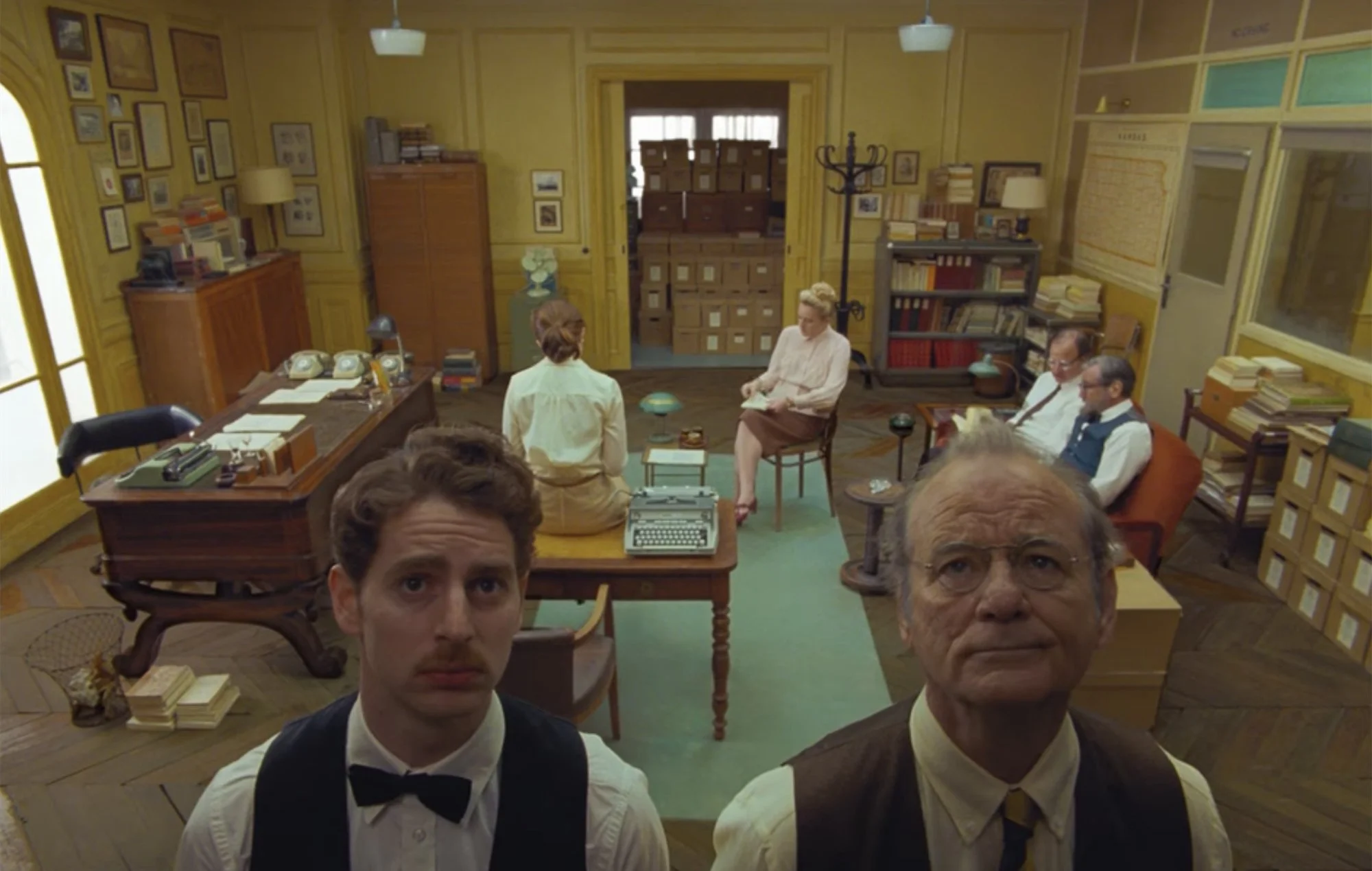Fresh Off The Presses: ‘The French Dispatch’ Film Review
by Will Lindus
We begin at the ending, as this is the nature of narrative, to create a closed loop between what was and what will be, leaving the journey to fill the liminal space between. We begin with an obituary, mourning the life, times, and most importantly, the career of one Arthur Howitzer, Jr. (Bill Murray), editor of The French Dispatch, an outpost of a fictional American newspaper in a fictional 20th-century French city. We begin with the story of why this issue of the publication will be the last, and we close on a moment of togetherness amongst the staff, and in that liminal space between the two, we find four stories, each remarkable not only for the passion that each writer brings to their piece, but for the attentiveness that Howitzer brings to helping his journalists find the beauty in their works.
You’ll forgive a bit of indulgent flourish in my introduction, I hope. The French Dispatch, the latest film by Wes Anderson, finds the director’s trademark quirky writing and precision staging employed to evoke a love letter of sorts to the journalistic process, as told through an homage to the slice-of-life portraits of art and humanity that one might find in the The New Yorker or similar publications. In fact, Anderson has directly referenced several real-life articles in creating the fictional city of Ennui-sur-Blasé and the brilliant if self-indulgent journalists who write about it, all of which he channels through the usual cadre of Anderson performers, including the aforementioned Bill Murray, Owen Wilson, Adrien Brody, Frances McDormand, and Tilda Swinton, as well as newcomers to the ensemble like Jeffrey Wright, Timothée Chalamet, and Léa Seydoux.
Through its structure, THE FRENCH DISPATCH plays like a focused anthology, with each of the short stories all possessed of Anderson’s signature style, though displayed in a variety of formats. We see black and white fade to color and back again, travelogue sections possessing a muted color palette, and vibrant animation sequences bookended brown and beige newsroom sets. Anderson views each of these stories in the fictional newspaper as unique expressions of journalistic prose, while also viewing the fictional publication they appear in as a work of art in its own right, and collates his film in much the same way. Through these stories, we seek something almost Bohemian in its discovery of truth and beauty. In one story, we explore the beauty found beneath the surface of urban sprawl, in another, the hidden genius of a masterful artist whose expressions of love catch the all-consuming eye of the art world. All of these stories are set to the beautiful, weird, and bouncy notes scored by composer Alexandre Desplat.
Admittedly, the biggest fault with The French Dispatch lies in its obsession with the editorial process; the love of words and of prose is explored more so here than are the relationships and the struggles of these characters, something of which Anderson is usually more cognizant. In previous films, despite his eccentricities, the struggles of people clashing against their expectations of their youth and the requirements of their maturity becomes a common theme, and for the most part (Chalamet’s story of student protest notwithstanding), The French Dispatch shifts towards a more mature work that is more interested in brains than it is in heart. The only moments I found that really connected to the heart of the piece came from artistic genius and violent inmate Benicio del Toro’s affection for his prison guard - and muse - Léa Seydoux.
Still, The French Dispatch accomplishes what it sets out to do. It is almost critic-proof, in that those who are most prone to a soft-spot for the weightless sincerity Anderson displays with this love letter to the journalistic process are those most likely to wax poetic about it in written reviews. Myself included.
And yes, I realize this review is equally self-indulgent.
4 out of 5 Bear Paws


